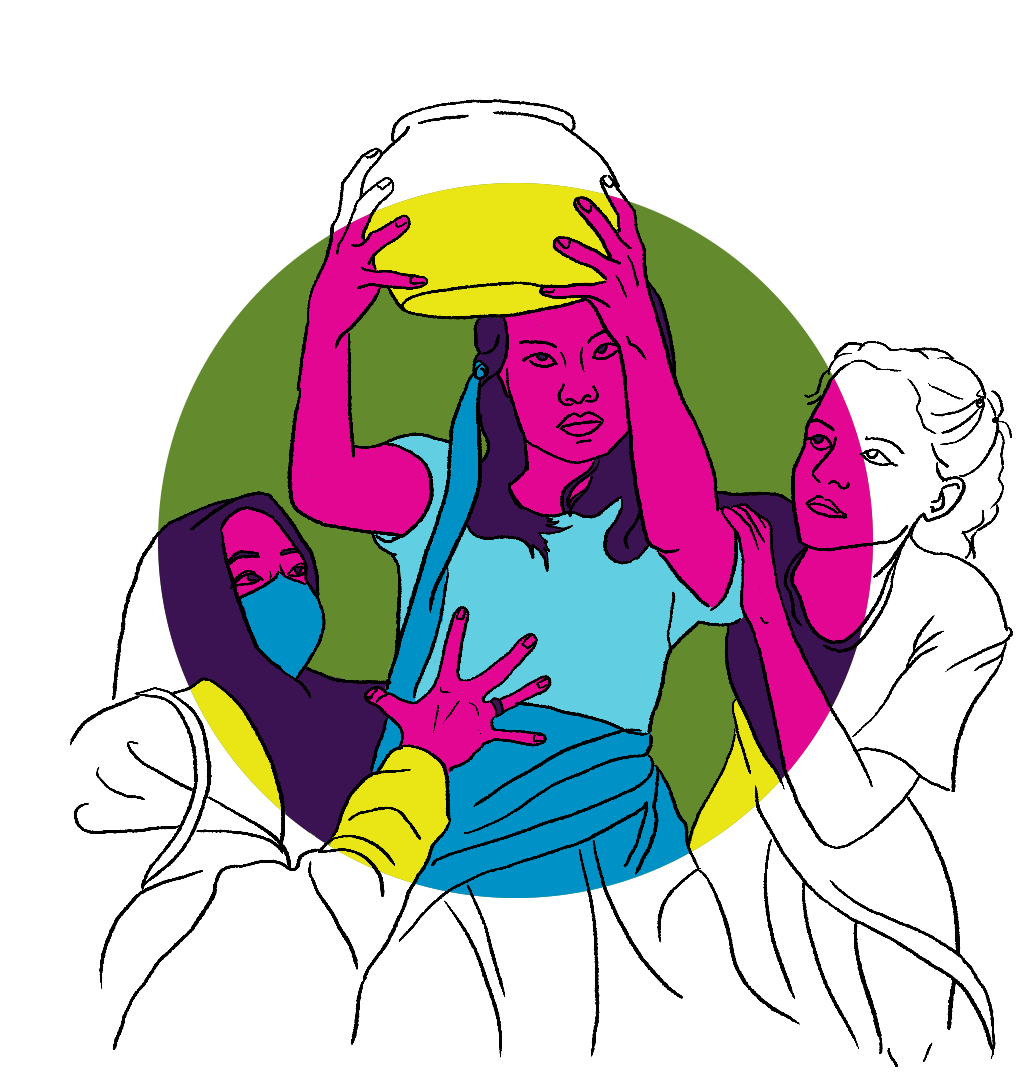In Indonesia, an inclusive dance company is breaking down the barriers around who can dance, and shifting paradigms in the process.
Social standards of what is ‘proper’, especially in a society like Indonesia with a high-context culture, have excluded those who do not comply with the criteria. These exclusions extend to the dance sector. In a region in which cultural and/or traditional dance is relatively dominant, those who do not meet the standards – generally due to their body shape or ability to move certain body parts – are not allowed to perform.
We do not mean to suggest that traditional or other mainstream dancing styles are ‘bad’. The practice of dance just tends to be insufficiently inclusive and leaves some people feeling excluded. When people do not comply with the established standards, they are labelled as ‘non-dancers’. Even when they keep dancing, they are judged. Finally, most of them give up their passion, taking away with them the belief that they are not good enough.
Thus, many of the people we encountered through our work told us they could not dance. When we asked why, their answers showed they were still trapped in conventional standards – they said they did not have a certain type of body or could not perform a certain movement of the body. Some felt shame, believing that the ‘real’ dancers would judge them.
In 2013, based on this experience, we built Nalitari, an inclusive dance community for all people, including women with or without disabilities. Nalitari creates a safe space for people to express themselves and move their bodies as they want. This community believes that people who want to dance should be allowed to do so. It aims to inspire a more inclusive society and promote changes in attitudes towards people from different backgrounds, regardless of social judgement or standards of what beauty is or what a dancer is.

Photo credit: Nalitari
People with different physical abilities also face challenges in other fields, such as economic development and employment. Of Nalitari’s disabled dancers, 90% did not have permanent jobs and were financially dependent on family or relatives. We saw an opportunity to make dancing a professional activity. Through our activities, we wanted to provide productive employment and decent work for people with disabilities, especially our disabled dancers.
In 2019, we began Nalitari’s transition from community-based organisation to social enterprise. With the DICE Fund from the British Council, Nalitari collaborated with We Are Epic from the UK. This collaboration was our first and most substantial step towards becoming a social enterprise. As an arts organisation, we needed to learn things outside of the arts, such as organisational management, strategy development, marketing and branding.
We received training and mentorship to strengthen our management approach and develop Nalitari’s economic potential. We developed our mission, vision, goals, values, organisational structure, business model and products. With our new governance structure, we registered as a company in Indonesia, opened a bank account and registered for tax.
Our next important step was to map out our strategy to create a durable business model. We decided on dance performance as a primary product. Through changes including the introduction of regular practices and professional artist workshops for Nalitari dancers, we made our performances more professional and saleable.
This community believes that people who want to dance should be allowed to do so
In 2019, we officially established the Nalitari Dance Company, which delivers inclusive dance performances for events and festivals. Within a year, we benefited 27 performers, 40% of them people with disabilities, through 10 performances. The salaries of our dancers have increased threefold compared to 2018, demonstrating the financial benefits of our enhanced quality and increased activities.
As another source of income, Nalitari created dance workshops, offered to institutions such as the government, schools and travel agencies, with our dancers acting as paid facilitators. The workshop format was chosen to engage people with limited time, skills or experience in dancing. Workshops could be delivered at short notice, on an ad hoc basis, in any location, with a minimum time of two hours. In 2019, we delivered two workshops with 37 participants in total.
Nalitari has also created collaborative merchandising projects. In 2019, for example, we collaborated with an inclusive school. We invited their students to dance together and then encouraged them to express their feelings when dancing through paintings. These designs were printed onto t-shirts. So far, 63 t-shirts have been sold and the income shared to support both organisations.
Nalitari is making an important contribution to the social economy of Indonesia. Indonesian society is diverse but, sadly, not everyone understands how to live in a diverse community. Concrete examples can help. Through its inclusive activities, Nalitari has successfully established itself as such an example.

Photo credit: Nalitari
Mainstreaming disability in development requires tackling paradigms. In Indonesia, people with disabilities are commonly perceived as objects of development or recipients of charity. Nalitari challenges that paradigm by letting people discover the work and talents of disabled people and their active participation in society.
At Nalitari, we acknowledge the challenges experienced by diverse people. We slowly but surely encourage our participants to express themselves, no matter what the cultural norms dictate or what other people say. Nalitari also encourages participants to respect and accept each other’s views and differences.
Thus, inclusive dance has an impact not only on society but on the dancers themselves. By finding a safe space to express themselves, dancers also gain a secure space to explore themselves. This helps build self-confidence and a more positive social identity – the initial capital that will enable the dancers to play a more active role in the sustainable development of social inclusion. Their active involvement is, of course, very important, because we assuredly know nothing about them without them.


